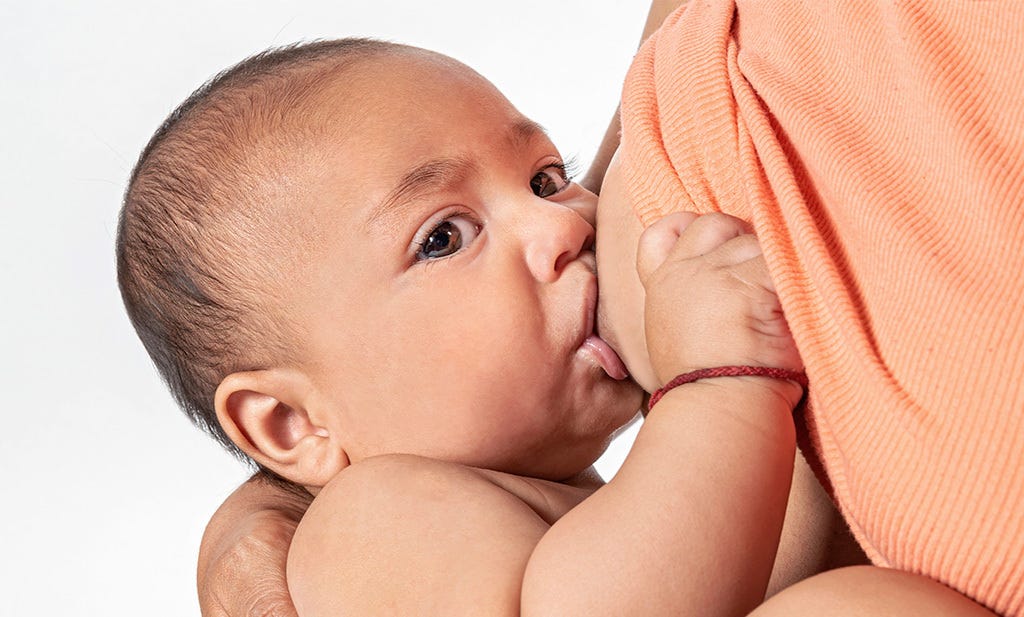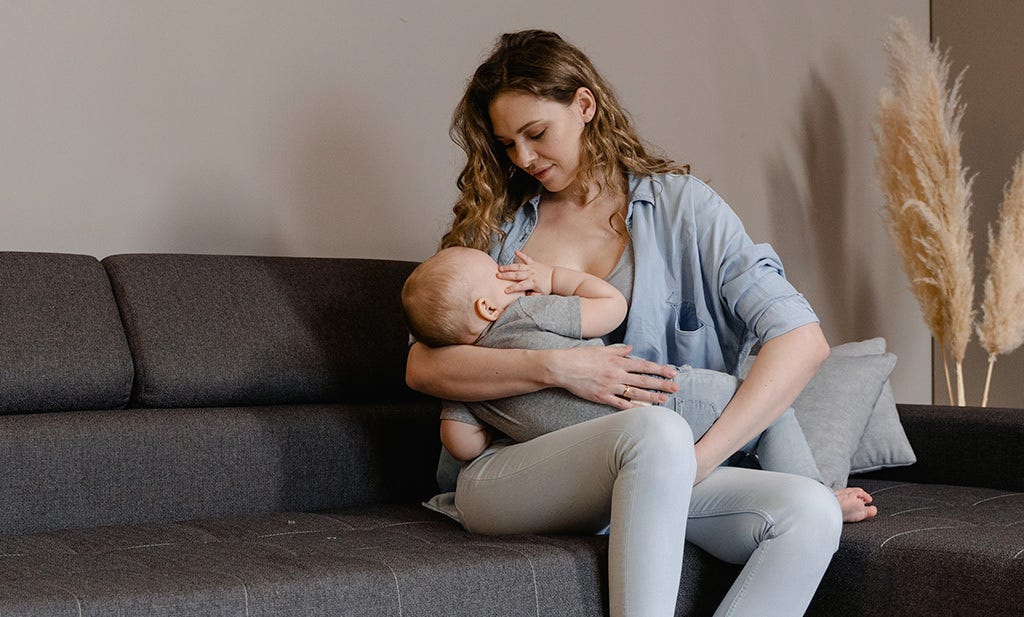
Ouch! What was that? You're sitting completely relaxed on the sofa with your baby and then suddenly your baby bites you! We get it, it really hurts ... After all, the nipple is super sensitive. And tiny little teeth are razor sharp. But don't worry, this is really the exception rather than the rule. If your baby belongs to the "teether" team, then today's blog article is for you. Because our midwife and expert Katrin Ritter knows why some babies do it and has some helpful biting-related chestfeeding / breastfeeding tips for you.
Baby bites while breastfeeding: When does it start?
On average, babies' first milk teeth come in between the sixth and eighth month of life. However, some babies start teething earlier (3rd/4th month) or later. And some are born with their first tooth already in their mouth. So, from the moment teething starts, an accidental bite can occur. Fortunately, teeth appear in the lower jaw first. And the baby pushes the protective tongue over those teeth when latched/sucking.
Why does my baby bite me when I'm breast/chestfeeding?
First: a baby does not bite out of malice. Ever! It may have an intention, but not to hurt you. On the contrary, there are several reasons that can result in biting. These include, for example:
- An unfavourable breast/chestfeeding position (baby is poorly positioned or not in the correct position)
- A strong milk let-down reflex with too much milk
- Frequent switching between chest/breast and bottle
- Colds leading to a blocked nose
- Difficulty grasping the breast/chest (e.g. due to a shortened frenulum/tongue-tie)
- In the first 4 weeks: due to birth trauma to the cervical spine, due to asymmetries (e.g. KISS Syndrome), due to a broken collarbone, etc. (must be clarified by a paediatrician)
- A spasmodic biting reflex (tendency of the child to clench the jaw when the inside of the mouth is touched), disappears in the first few weeks
- Decreasing interest in breast/chestfeeding
- Increased muscle tone
- Neurological and other impairments
Of course, teething babies can also bite because they want to relieve their pain. Because as soon as the little teeth start to appear, their gums hurt. They like to chew on something to relieve this pain. During breastfeeding, this can sometimes be the nipple. You can read more about how to help a teething baby on our blog here
What not to do if baby bites?
If your baby bites you, do not react violently under any circumstances. Don't shout at your baby or scold them. Stay calm and try to breathe away the pain. This is because your little one could be frightened and associate the shock with breast/chestfeeding. This can lead to a feeding strike and cause your baby to refuse to breast/chestfeed.
What to do if baby bites while breast/chestfeeding?
As already mentioned, try to stay calm and explain to your baby that you cannot feed them if they hurt you. Briefly interrupt the feeding process so that your baby learns that there is no more milk when they bite. However, it is important to try and find out the reason for the biting if it keeps happening. We’d recommend contacting your midwife or an IBCLC (International Board Certified Lactation Consultant), who will take a look at your feeding and work with you to find the cause. A paediatrician or GP's examination may also be necessary and helpful.

What can you do to prevent my baby from biting when teething?
If you know that your baby is teething and is in pain, you can help him or her to alleviate this before breastfeeding. If your baby is older than four months, you can massage the gums before and during a breastfeeding break. To do this, wash your hands thoroughly and gently rub the gums with a finger or an oral hygiene finger rub. Chilled teething rings for in-between feeds can also be helpful and alleviate discomfort. Check out our full blog post on this here. (link to teething blog)
Chestfeeding / Breastfeeding tips for everything else!
If your baby doesn't bite when breastfeeding, but you have other questions about breast/chestfeeding then have a browse through our blog. Here you'll find lots of information and helpful Chestfeeding / Breastfeeding tips from our experts - from breastfeeding with breast piercings and milk stasis to breastfeeding in public.



















